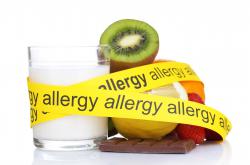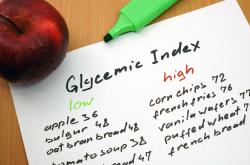3 Worst Diet Decisions You Can Make If You Are Suffering From Fatigue
Stress and tiredness make us crave unhealthy foods, which can lead to weight gain. Dieting, skipping meals, and avoiding fats to control weight have damaging effects on our health. They deprive us of essential nutrients and cause us to seek out sugary foods even more. We become prone to health problems and more stress.
Anger, anxiety, frustration, pain, and grief are some of the emotions that we through under severe stress or fatigue. These feelings can affect our drive to eat. Some people try to cope with stress by binge eating, others by forgoing food. Neither is good for the body, but because of the brain’s natural reaction to stress, and because of several myths about food, people who are suffering from fatigue tend to develop unhealthy eating patterns. There are three responses to stress that involve diet, and all have been shown to do the body more harm than good: eating junk foods, food restriction, and avoiding fats.
1. Feasting on Junk Foods
One symptom of adrenal fatigue, which results when the adrenal glands are no longer able to handle stress, is craving sweet and salty foods. Snacks that satisfy this craving usually contain lots of calories but have little nutritional value. They fall into the category of junk foods.
Unlike real, natural food, junk foods are loaded with chemicals, preservatives, hydrogenated fats, and devitalized ingredients. Examples of junk foods include popular snacks like candy bars, cookies, doughnuts, and sodas. They are available almost everywhere—at convenient stores, fast-food chains, malls, cinemas, offices, and so on.
While some people think their food cravings have to do with their having a “salty tooth” or a “sweet tooth,” experts attribute the overwhelming desire for high-calorie treats to certain brain chemicals and hormones.
Dopamine and opioids work together to make the brain remember the taste bud’s experience with salty and sugary snacks, and crave them. This is not helped by the fact that manufacturers of junk foods make them as addicting as possible.
Because the body is drawn to high-energy foods during stress, junk foods, rich in sugar, sat, fat, and calories, have become common stress relievers. Generally, however, they are considered unhealthy and unsafe. Not only do junk foods provide little nutrition, they also have been shown to cause health problems like malnutrition, obesity, diabetes, and hypertension. So, if you feel the need for “comfort food” to relieve yourself of stress, or reward yourself after a stressful event, remember the health dangers of junk foods before grabbing a bag of chips at the nearest grocery store.
2. Fasting or Food Restriction
Stress has been linked to weight gain because of its influence on appetite and blood sugar. Cortisol release when the body is reacting to stress increases desire for food. If you always cave in to your craving for junk foods when stressed, chances are you’ll put on weight.
Some people try to neutralize the effects of junk foods and control weight by starving themselves or severely restricting the food they eat. This approach to losing weight can prove damaging to health.
Even if you have the will to lose weight by dieting, your body reacts differently to hunger. Because it needs to keep blood sugar levels balanced, skipping meals can cause your blood sugar to drop sharply and lead to tiredness, lethargy and junk food cravings. Ignoring hunger pangs can also lead to mood swings, anxiety, and panic.
When your blood sugar level is too low and you do not eat, the brain tells your adrenals to release adrenaline and cortisol. It’s part of the body’s emergency response when it thinks that you are starving. Adrenaline releases the sugar from your liver and muscles, while cortisol produces sugar from your own muscle mass to give the body energy. After this sugar gets into the bloodstream, insulin is released, which means that the sugar gets stored as fat. This will happen over and over as long as you do not eat. It’s a process called a blood sugar roller coaster.
Another consequence of severely limiting food consumption or regularly skipping meals is reduced metabolism. As a result of frequent cortisol release, your muscle mass will decrease and your body will have difficulty burning up calories. Because of the lowered metabolic rate, when you finally decide to eat, the excess calories will be stored as fat. This explains why people who lose weight by going on a strict diet gain the weight back. Besides putting on extra pounds, they also become at risk of obesity and diabetes.
3. Eliminating Fat From Your Diet
Sticking to a non-fat, high carbohydrate diet is a popular way of losing weight. But doctors warn of the dangers of avoiding fat entirely in your diet. A fat-free diet results in higher insulin levels, increasing the chances of anxiety attacks, depression and diabetes. Constipation, dry skin, infertility, insomnia, and fatigue also feature in the list of health problems linked to fat deficiency. If you are missing out on fats essential to health, you can also suffer from malnutrition and heart disease, and have lower good cholesterol.
Contrary to the so-called lipid hypothesis—that high cholesterol increases the risk for heart disease—cholesterol is an essential nutrient. Cholesterol is important to hormone production and brain function. Cholesterol and saturated fats, also called stable fatty acids, have many other health benefits. Coconut oil, a good example of saturated fat, can help fight viruses. Saturated fats also boost your immune system, protect your liver, and make your bones healthy. Another effect of having saturated fat in your diet is that it keeps you satiated, preventing you from craving junk foods.
Unfortunately, the media and magazines have portrayed saturated fat as unhealthy. They blame it for the increase in obesity, heart disease, and diabetes. But the real culprit, experts say, is the rising consumption of unhealthy fats. These include artificial polyunsaturated fats and artificial hydrogenated fats, which are believed to increase the risk for cancer and heart disease. They are commonly found in processed foods, such as doughnuts, cakes, fries, and so on.
Another important fats are Omega 3 fatty acids. They are found mostly in oily fish, such as salmon, sardines, and anchovies. Omega 3 fats have been shown to be critical for healthy brain and nervous system. They also help to bring down inflammation throughout the body. Because our bodies can't make Omega 3 fats on their own, we need to get them from food - for this reason, they are called essential fatty acids.
To Sum Up
Because your body clearly needs different healthy fats to function properly, instead of totally ditching fat in favor of one food group, strive to have a balanced diet. Don’t fall for “fat free” labels on food packages. Non-fat processed foods can cause high blood pressure because they are usually filled with sodium to improve flavor. Avoid simple carbohydrates. Go for complex carbohydrates found in whole grains, fruits, and vegetables. They provide essential fiber as well as vitamins and minerals. Of course remember to also include proteins in your diet. Proteins, from food like tofu, soy products, cheese, and eggs, keep you alert and help control blood sugar.
You might also be interested in:
- Junk-Food Facts. http://www.m.webmd.com/diet/features/junk-food-facts
- Why We Crave Sugary Snacks and Not Fruit and Veg. http://www.dailymail.co.uk/health/article-1382217/Why-crave-junk-food-fruit-veg.html
- 6 Ways to Beat Your Food Addiction. http://www.prevention.com/food/healthy-eating-tips/signs-symptoms-and-treatment-food-addiction
- Can Stress Cause Weight Gain? http://www.webmd.com/diet/can-stress-cause-weight-gain
- The Non-Fat, High-Carbohydrate Diet Fantasy. https://newcreationsministries.wordpress.com/author/emarrandette1/
- Tired of Being Tired by Dr Jesse Lynn Hanley and Nancy Deville. Penguin Books, 2004.



















Leave a comment